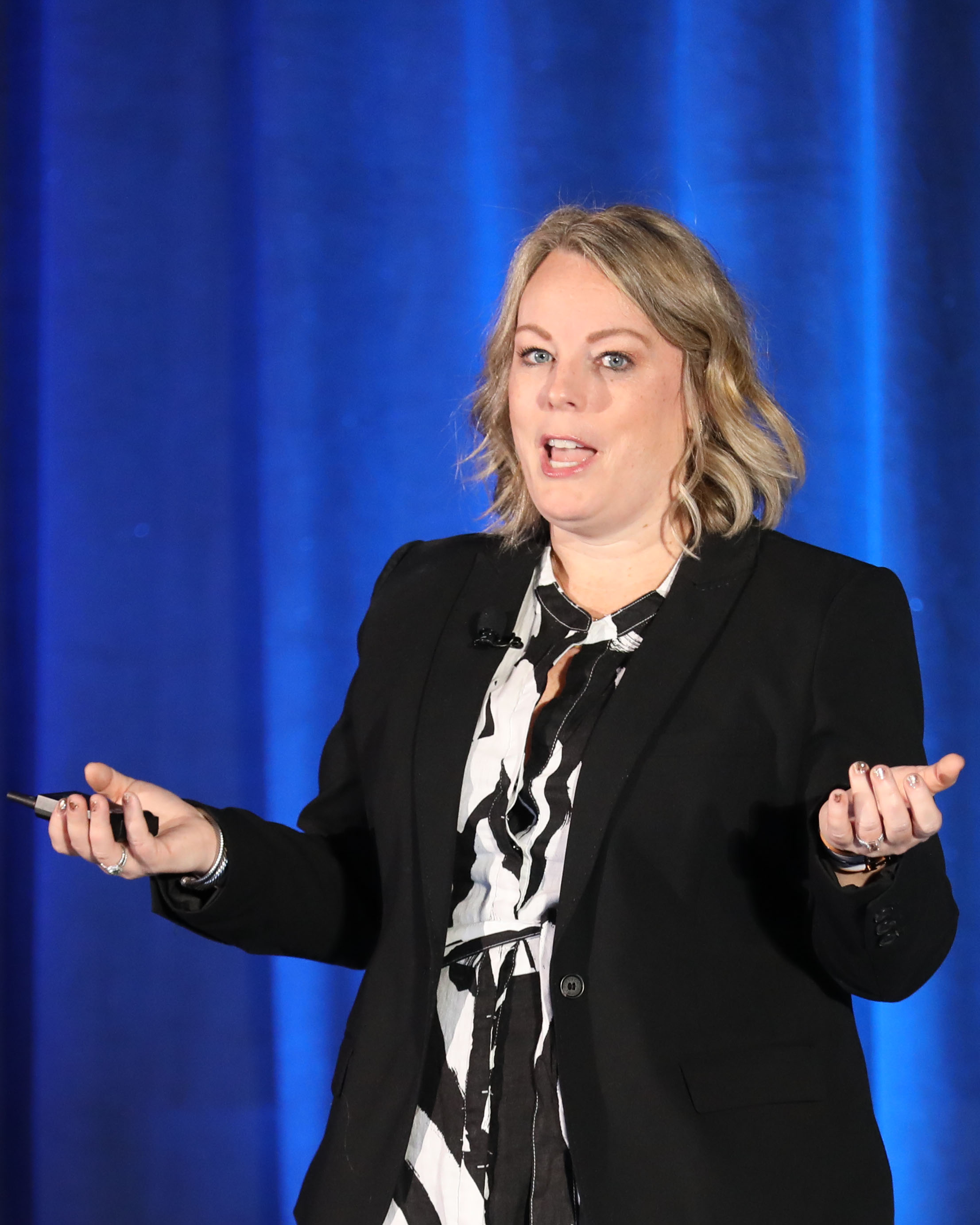
Melissa Threlkeld
Although Ms Threlkeld, MHA, has worked in healthcare for 30 years, with the majority of those years spent in oncology, she recalls being completely lost and confused by what she was told by her care team.
Melissa Threlkeld endured a grueling 7-month-long journey to a cancer diagnosis and has now spent (almost) 7 months as a survivor. At the AONN+ 2023 Annual Conference in San Antonio, TX, she shared the inspirational story of her “messy” cancer journey, which was fraught with confusion, fear, misdiagnoses, an eventual diagnosis of a rare but aggressive form of peritoneal mesothelioma, and a challenging 8-hour surgery, all without the guidance of a navigator. She’s now determined to “turn her mess into her message,” with one of the main tenets of that message being that every person with cancer should have an oncology navigator.
“From the eyes of a patient who didn’t have one,” she said, “I can tell you why every patient needs a navigator.”
A diagnosis of cancer throws your life plans for a loop. “You traverse so much unknown, and there’s a lot of confusion. It’s not always easy to get a diagnosis, and when you do, it can be hard to even understand it,” she continued. “Patients often feel alone to traverse the unknown, despite being surrounded by a ton of people. It’s unsettling, it’s uncertain, it’s chaotic, and frankly, it’s terrifying.”
Although Ms Threlkeld, MHA, a consulting principal at Vizient/Sg2, has worked in healthcare for 30 years, with the majority of those years spent in oncology, she recalls being completely lost and confused by what she was told by her care team and wishes she had a navigator to guide her through those confusing times.
“If you think about my background, it should have been an easy journey because I probably know more than the average patient in terms of how to navigate the healthcare system,” she said. “But I will tell you I knew nothing; it was a humbling experience.”
She said that even “hopeful” moments can be disheartening, because so much of what is conveyed to patients with cancer is in a language they don’t understand. She compares it to being lost in the jungle without a map. “This is why every ‘journeyer’ needs a guide, and I believe the best guide is a navigator,” she said.
Ten Reasons Why Every “Journeyer” Needs a Guide
- Someone to reaffirm what the doctor said: According to Ms Threlkeld, every patient should have access to someone who can explain terms like “diagnosis” and “prognosis,” as well as plans for additional testing, interpreting pathology results/reports, treatment plans, discharge instructions, things to look out for as you heal, and surveillance plans.
- Someone to guide when (and where) to go in: Navigators can save lives by simply calling patients to check on them, and by letting them know when a concern is serious enough to go into the hospital.
- Someone to track down the doctor when it’s important: Ms Threlkeld waited a week and a half for pathology results that would determine whether she would have to undergo adjuvant chemotherapy. She was convinced no one was calling with her results because it was “really bad news.” It wasn’t. “I guarantee a navigator could have gotten me those results, and I could have saved a week and a half of worry,” she said. “I did not have to have adjuvant chemo.”
- Someone to educate and prepare the patient early on: She was not warned that an ostomy would be a possibility in her future; when an ostomy nurse came to educate her on it, she was completely overwhelmed and devastated at the prospect. “A navigator can help you prepare and educate you, and make sure you have a full understanding of what you’re about to get yourself into,” she said.
- Someone to connect with for post-op follow-up care: like physical therapy
- Someone to connect the patient to resources they wouldn’t otherwise know about: A navigator friend told her about a tool that allows friends/family to sign up to take turns staying overnight with a patient. She needed this much more than something like a meal train, as she couldn’t lift more than 5 pounds for 8 weeks.
- Someone to help understand what a patient needs at home: like a walker, raised toilet seat, etc. “All I could think about was being on the surgery table,” she said. “I didn’t think to ask about all of that.”
- Someone who allows you to just be a patient: without having to worry about all of the logistics.
- Someone (with credibility) to tell you that it’s going to be okay: “A lot of people in your life tell you it’s going to be okay,” she said. “I wanted someone that knew it was going to be okay.”
- Someone to walk beside the patient through it all: “You can be surrounded by hundreds of friends and family and still feel isolated in a jungle without a map,” she said. “You need a navigator to stand beside you and let you know you’re not alone.”



